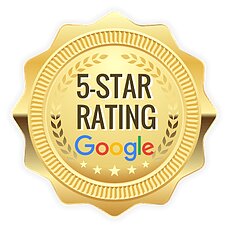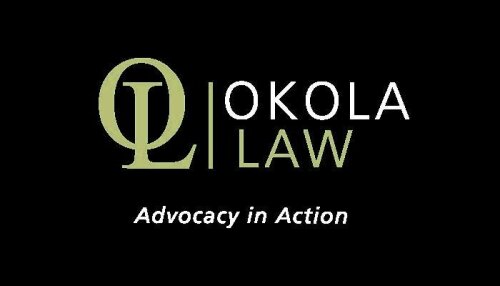Best Hiring & Firing Lawyers in Toronto
Share your needs with us, get contacted by law firms.
Free. Takes 2 min.
List of the best lawyers in Toronto, Canada
About Hiring & Firing Law in Toronto, Canada:
Employment law in Toronto, Canada, governs the rights and responsibilities that arise between employers and employees. This includes hiring and firing practices, which are subject to specific regulations to ensure fairness and compliance with the law.
Why You May Need a Lawyer:
There are various situations where individuals may need legal assistance with hiring and firing issues, such as wrongful termination, discrimination, harassment, or negotiating employment contracts. A lawyer can help navigate complex legal matters, protect your rights, and ensure the best possible outcome.
Local Laws Overview:
In Toronto, Canada, employment laws are outlined in various statutes, including the Employment Standards Act, the Human Rights Code, and the Ontario Labour Relations Act. These laws establish guidelines for minimum wage, working conditions, equal treatment, and termination procedures. It is essential to understand these laws to protect your rights as an employee or employer.
Frequently Asked Questions:
1. Can my employer fire me without cause?
Yes, in most cases, an employer can terminate an employee without cause as long as they provide reasonable notice or pay in lieu of notice. However, there are exceptions, such as wrongful dismissal cases.
2. What is wrongful dismissal?
Wrongful dismissal occurs when an employer terminates an employee's contract without proper notice or compensation, or for discriminatory reasons. In such cases, the employee may be entitled to damages.
3. Can I be fired for filing a complaint against my employer?
No, it is illegal for an employer to retaliate against an employee for filing a complaint or speaking out about workplace issues. This falls under the protection of whistleblower laws.
4. What is considered discrimination in the hiring process?
Discrimination in the hiring process may involve treating individuals unfairly based on factors such as race, gender, age, disability, or religion. Employers must adhere to anti-discrimination laws in all aspects of employment.
5. Do I need a written employment contract?
While not always required, having a written employment contract is advisable to clearly outline the terms and conditions of employment, including job duties, compensation, benefits, and termination procedures.
6. How can I negotiate a severance package?
A lawyer can help negotiate a fair severance package on your behalf by assessing your entitlements based on factors such as length of service, position, age, and the circumstances of termination.
7. Can I challenge a termination decision in court?
If you believe your termination was unlawful or unfair, you can challenge the decision in court by filing a wrongful dismissal claim. Legal representation can help you navigate the legal process and seek appropriate remedies.
8. What are my rights if I am on probation?
Employees on probation have similar rights to regular employees, including protection from discrimination, harassment, and wrongful termination. However, the notice period for termination may be shorter during probation.
9. How can I prove wrongful dismissal?
To prove wrongful dismissal, you may need to gather evidence of the circumstances surrounding your termination, such as emails, performance reviews, witness statements, and employment contracts. A lawyer can help build a strong case on your behalf.
10. How long do I have to file a wrongful dismissal claim?
In Ontario, the limitation period for filing a wrongful dismissal claim is generally two years from the date of termination. It is crucial to act promptly to preserve your rights and seek legal advice as soon as possible.
Additional Resources:
For more information on hiring and firing laws in Toronto, Canada, you can contact the Ontario Ministry of Labour, the Human Rights Legal Support Centre, or seek advice from a reputable employment lawyer in the area.
Next Steps:
If you require legal assistance with hiring and firing matters in Toronto, Canada, it is advisable to consult with an experienced employment lawyer who can assess your situation, provide tailored advice, and represent your interests effectively. Contact a legal professional to discuss your options and rights under the law.
Lawzana helps you find the best lawyers and law firms in Toronto through a curated and pre-screened list of qualified legal professionals. Our platform offers rankings and detailed profiles of attorneys and law firms, allowing you to compare based on practice areas, including Hiring & Firing, experience, and client feedback.
Each profile includes a description of the firm's areas of practice, client reviews, team members and partners, year of establishment, spoken languages, office locations, contact information, social media presence, and any published articles or resources. Most firms on our platform speak English and are experienced in both local and international legal matters.
Get a quote from top-rated law firms in Toronto, Canada — quickly, securely, and without unnecessary hassle.
Disclaimer:
The information provided on this page is for general informational purposes only and does not constitute legal advice. While we strive to ensure the accuracy and relevance of the content, legal information may change over time, and interpretations of the law can vary. You should always consult with a qualified legal professional for advice specific to your situation.
We disclaim all liability for actions taken or not taken based on the content of this page. If you believe any information is incorrect or outdated, please contact us, and we will review and update it where appropriate.
















